Question And Answer
Publications
Articles, publications, books, tools and multimedia features from the U.S. Institute of Peace provide the latest news, analysis, research findings, practitioner guides and reports, all related to the conflict zones and issues that are at the center of the Institute’s work to prevent and reduce violent conflict.
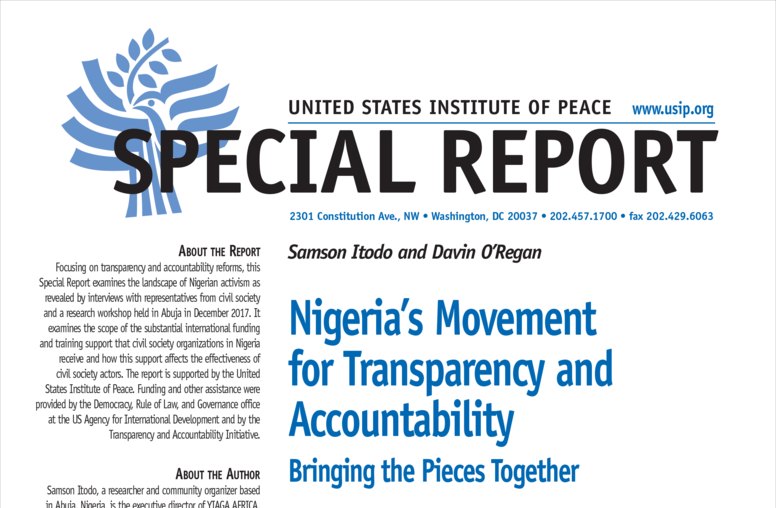
Nigeria’s Movement for Transparency and Accountability
Since the demise of its military dictatorship in the late 1990s, Nigeria has made remarkable democratic progress. Still, widespread corruption bedevils the country—which in many respects presents its biggest policy challenge and its biggest threat to stability and development. Drawing on a workshop held in Abuja as well as on...
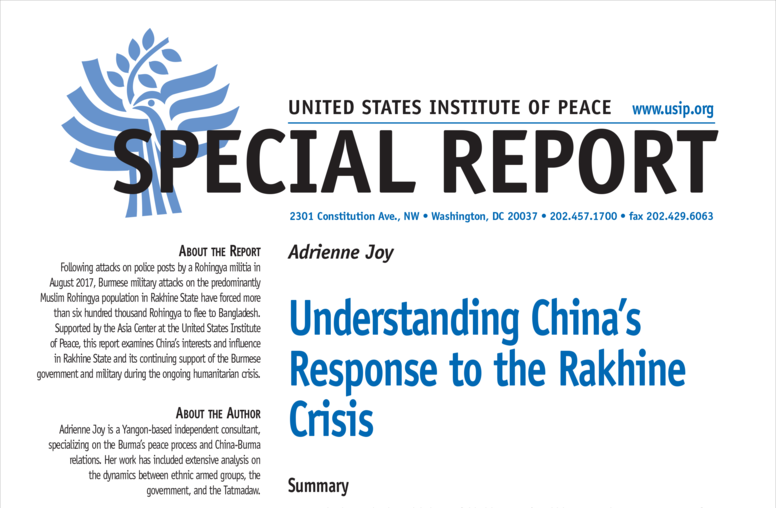
Understanding China’s Response to the Rakhine Crisis
Following attacks on police posts by an armed Rohingya militia in August 2017, reprisals by the Burmese government have precipitated a humanitarian crisis. More than six hundred thousand Rohingya have fled to Bangladesh, where they face an uncertain future. Publicly stating that the root cause of conflict in Rakhine is...
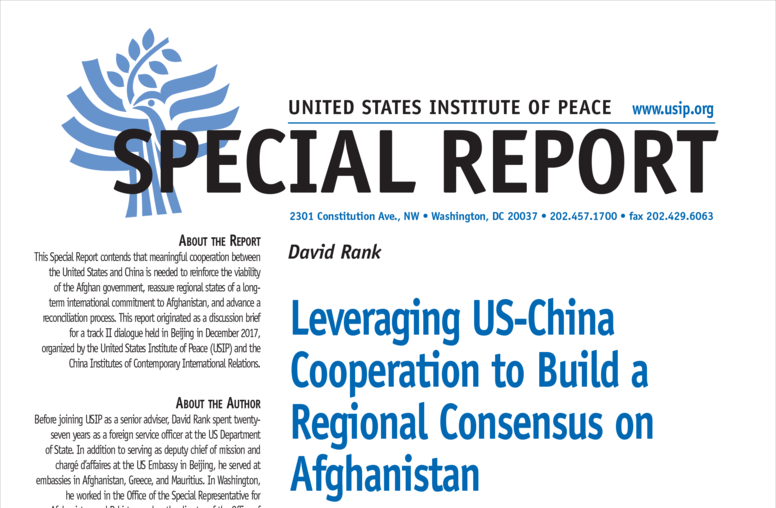
Leveraging U.S.-China Cooperation to Build a Regional Consensus on Afghanistan
The United States and China share an interest in seeing an end to the Afghan conflict that incorporates the Taliban into Afghanistan’s political system and prevents that country from becoming a safe haven for transnational terrorist groups. Yet U.S.-China cooperation on Afghanistan has been...
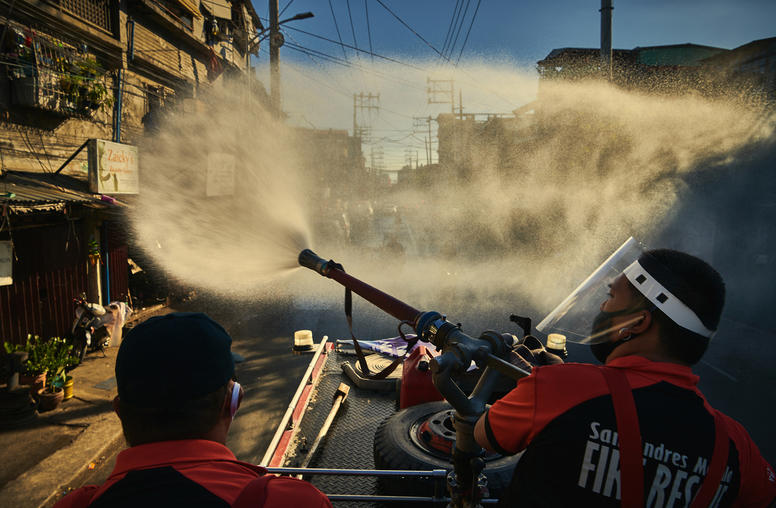
Searching for COVID-19 Ceasefires: Conflict Zone Impacts, Needs, and Opportunities
On March 23, 2020, as COVID-19 was first appearing in many conflict-affected areas, UN Secretary-General António Guterres issued a call for warring parties to cease hostilities and instead wage battle against the pandemic. Drawing on an examination of conflicts in Afghanistan, Colombia, Cameroon, Israel and Palestine, Libya, the Philippines, Syria, Ukraine, and elsewhere—this report looks at how COVID-19 has affected conflict parties’ interests, positions, and capacities, and provides recommendation for how the international community leverage the pandemic to promote peace.
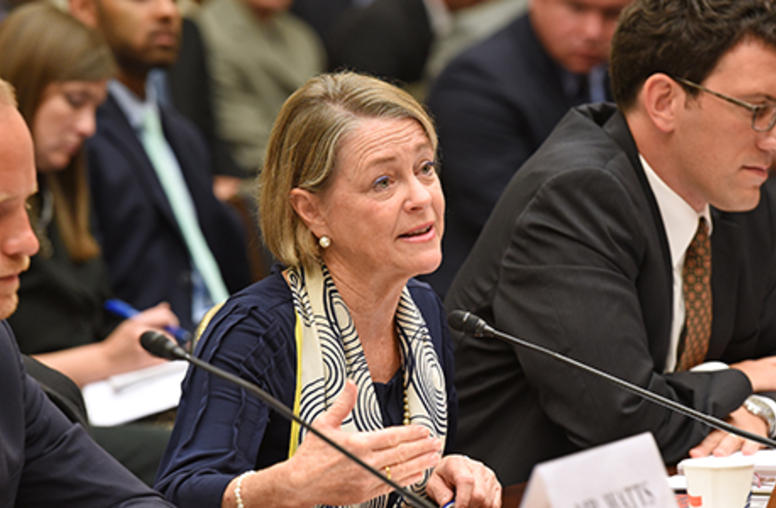
Women Under ISIS Rule: From Brutality to Recruitment
Dr. Kathleen Kuehnast, director of gender programs at the U.S. Institute of Peace, testifies before the House Foreign Affairs Committee. More from Dr. Kuehnast following her testimony, ”How ISIS Exploits Children by Manipulating Gender Dynamics."
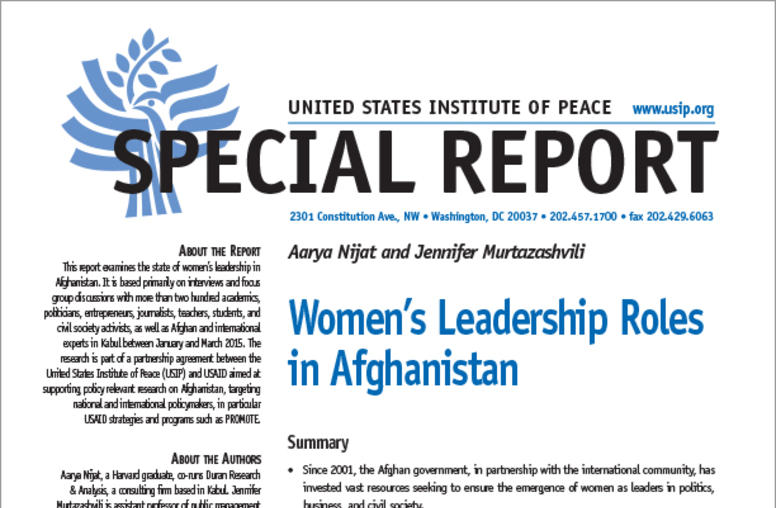
Women’s Leadership Roles in Afghanistan
In the days after September 11, the international community’s desire to “rescue” Afghan women from their social, political, and economic fate was key to mobilizing global support to topple the Taliban regime. Since then, the Afghan government and the international community have invested vast resources seeking to improve the status of women in the country, primarily through programs to support women leaders in politics, business, and civil society. Drawn on interviews and focus group discussi...
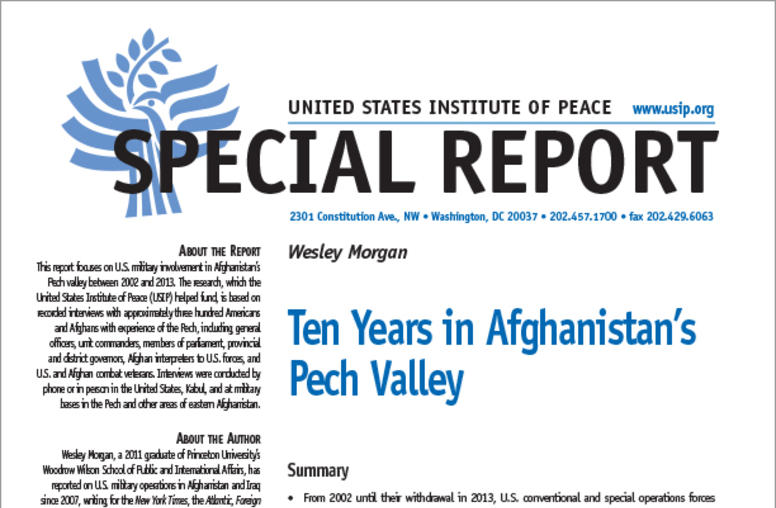
Ten Years in Afghanistan’s Pech Valley
The al-Qaeda presence in the Pech valley is greater now than when U.S. forces arrived in 2002, and counterterrorism efforts in the region continue. This report looks at U.S. military involvement in the Pech valley and the lessons it offers both the Afghan National Security Forces and the U.S. military. It is derived from interviews with some three hundred Americans and Afghans, including general officers, unit commanders, members of parliament, district and provincial governors, Afghan interp...
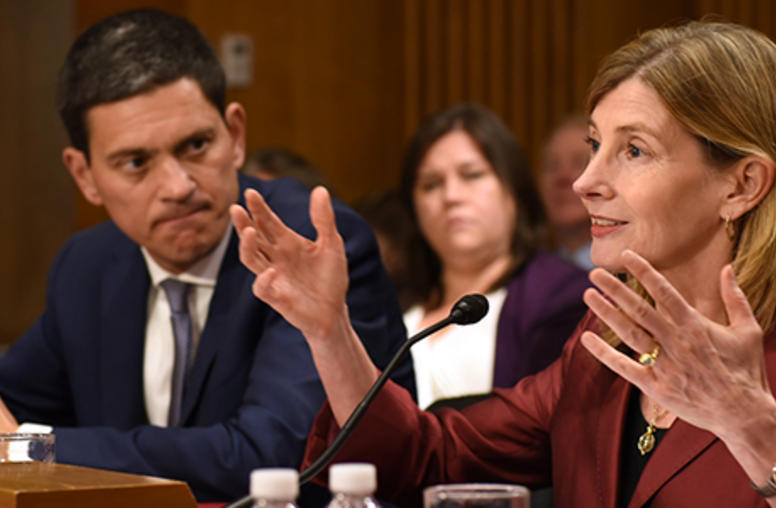
The U.S. Role and Strategy in the Middle East: The Humanitarian Crisis
USIP President, Nancy Lindborg, testifies before the U.S. Senate Committee on Foreign Relations. More from President Lindborg following her testimony, "Refugees and Social Cohesion."
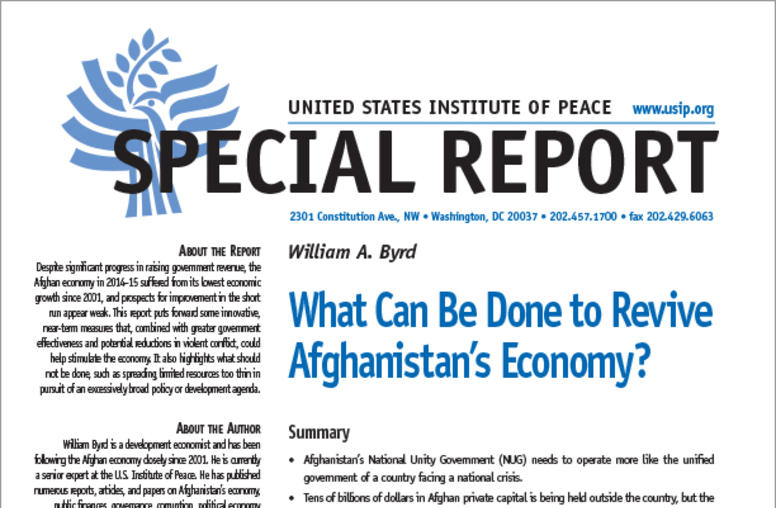
What Can Be Done to Revive Afghanistan’s Economy?
Reviving the Afghan economy during a time of intensifying violent conflict, declining external financial aid, and ongoing political uncertainty and dysfunction will be extremely challenging. But the country cannot wait for these entrenched problems to be addressed. While keeping expectations modest, this report proposes some targeted, near-term measures to increase confidence and stimulate the economy. Rather than engaging in politics as usual and following conventional policy prescriptions t...

UNSCR 1325 in the Middle East and North Africa: Women and Security
The United Nations Security Council passed Resolution 1325 fifteen years ago. The resolution addresses the disproportionate impact war has on women and reaffirms their important role in conflict management, conflict resolution, and sustainable peace processes. This report pulls from interviews conducted with academics, activists, government officials, and nongovernmental leaders in Egypt, Iraq, Israel, the Palestinian territories, and Tunisia. It examines the benefits and challenges of the re...